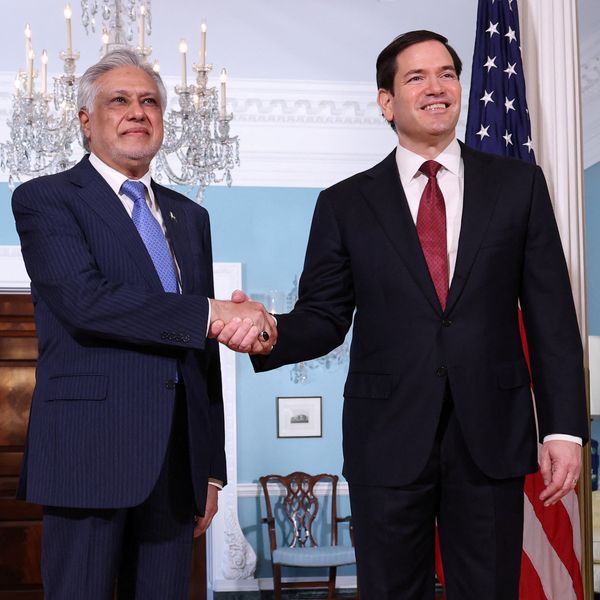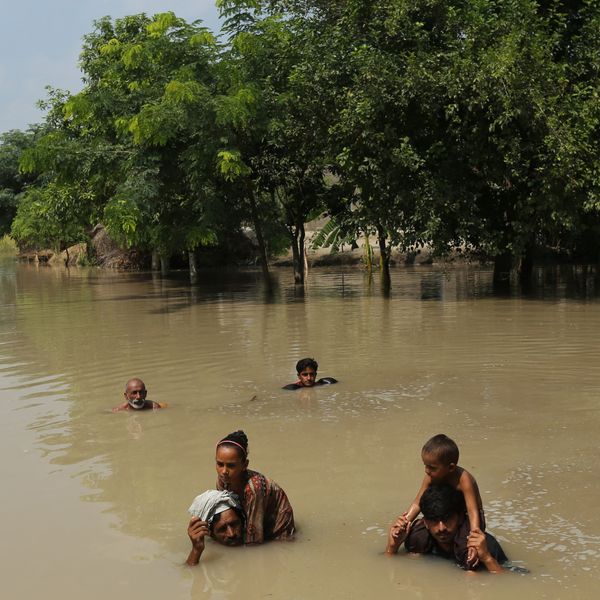Most Americans oppose US role in Iran-Israel war, poll shows
Kamran Khan analyzes rising Iran-Israel tensions as Khamenei rejects Trump’s surrender demand, US escalation feared
News Desk
The News Desk provides timely and factual coverage of national and international events, with an emphasis on accuracy and clarity.
Despite talk of possible U.S. military involvement in the Iran-Israel conflict, a new CNN and YouGov poll shows that a large majority of Americans reject direct military intervention.
According to the poll, only 16% of Americans support the idea of sending U.S. forces into the Iran-Israel war. About 60% are opposed, while 24% remain unsure.
Opposition to U.S. military involvement cuts across political lines. Sixty-five percent of Democrats and 61% of independents oppose intervention. Even among Republicans—former President Donald Trump's party—53% say they do not support sending American troops into the conflict.
Amid this backdrop, Iran’s Supreme Leader Ayatollah Ali Khamenei issued a defiant televised address in response to President Trump’s demands for “total surrender.”
“The Iranian nation cannot be surrendered,” Khamenei declared, vowing to retaliate against Israel and warning the U.S. of serious consequences if it intervenes militarily. This marks the Supreme Leader’s first public appearance since direct hostilities began between Iran and Israel.
His statement came hours after Trump posted on social media calling for “complete surrender,” while taunting the Iranian leader by saying, “We know exactly where the so-called Supreme Leader is.” Trump added that Khamenei is an easy target but the U.S. is choosing not to strike him – “for now”.
Israeli Defense Minister Israel Katz echoed Trump’s stance, warning that if Iran continues its attacks, Khamenei could meet the same fate as Iraq’s former dictator Saddam Hussein.
In a further escalation, Iran’s military chief Major General Abdolrahim Mousavi issued a stark warning to Israeli civilians. He urged residents of Tel Aviv and Haifa to evacuate, claiming Iran’s recent strikes were just a “warning,” and that a decisive attack was yet to come.
As hopes of a ceasefire fade, the U.S. is reportedly boosting its military presence in the Middle East. Additional fighter jets—including F-16s, F-22s, and F-35s—are being deployed, while nearly 40,000 U.S. troops are already stationed across the region.
What’s causing even greater alarm are reports in U.S. media about the possible deployment of B-2 stealth bombers equipped with 30,000-pound GBU-57 “bunker buster” bombs. These weapons could be used to target Iran’s underground Fordow nuclear facility.
On the ground, the war continues to cause devastation. In just five days, at least 224 people have been killed in Iran and 24 in Israel, according to various reports. CNN reported that Tehran has launched 380 ballistic missiles at Tel Aviv during this period. Analysts estimate Iran now has roughly 1,300 such missiles left.
While Iran appears determined to stand its ground, military experts warn that its rapidly depleting missile stockpile could eventually force it to consider a diplomatic exit.











Comments
See what people are discussing